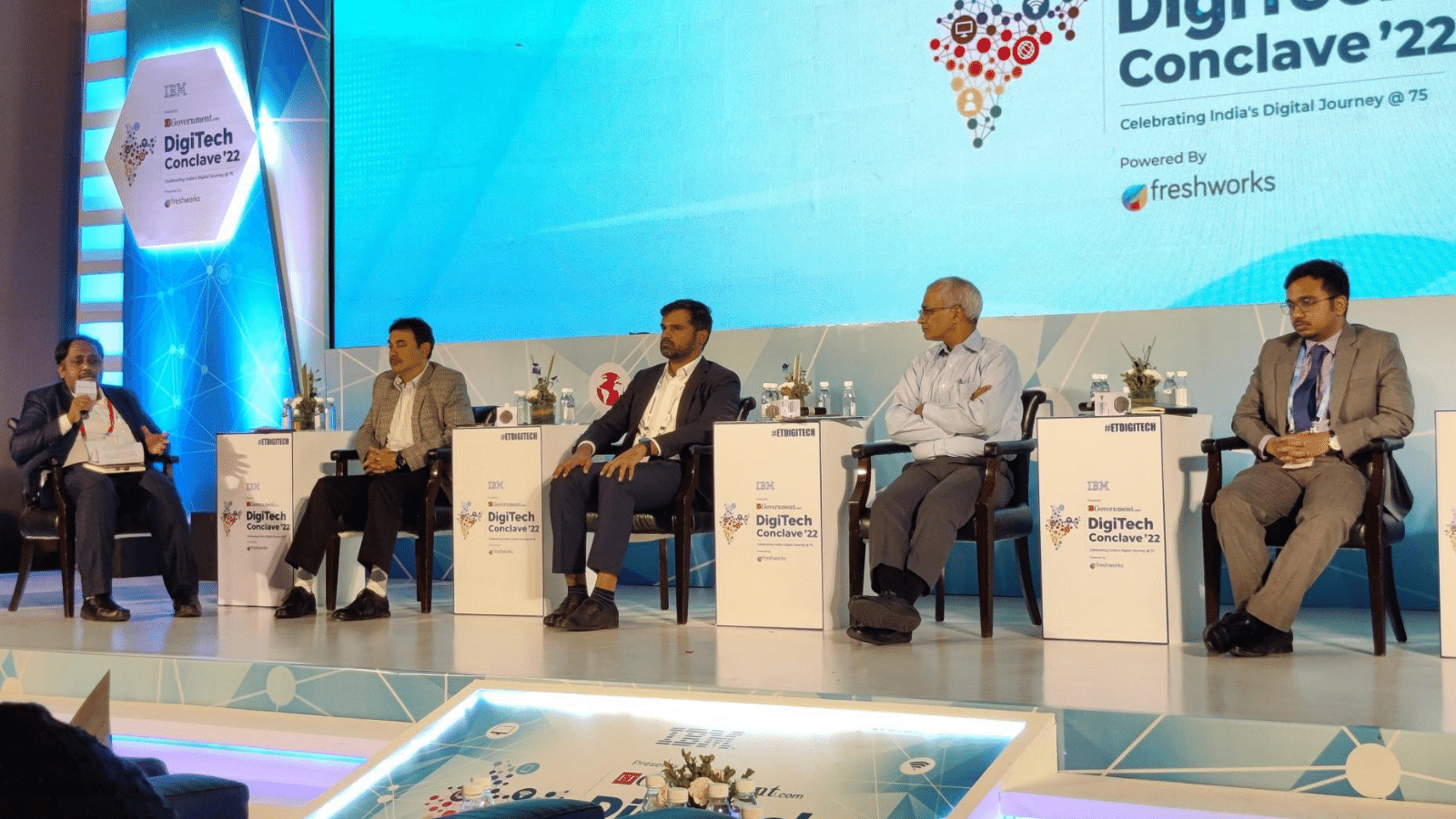
Hyderabad, India, August 29, 2022 – the third edition of Digitech Conclave was organized by ETGovernment on 25th August 2022 with the agenda to discuss the future of the Digital governance framework. Quixy, the leading no-code platform, participated as a Digital Transformation Partner to exhibit the part that no-code platforms have the potential to play.
The idea behind the event was to provide a platform for state leaders, policymakers, and industrial experts to exchange ideas and knowledge and get the conversation going about the power and potential of Digital India across different sectors.
While all the leaders and policymakers acknowledge the importance of the distribution of data, KTR, Minister for IT, Municipal Administration & Urban Development, Telangna, said, “If technology is not leveraged to serve people better and bring in a positive change in governance, then it is of no use”.
When talking about the two I’s of digital transformation, i.e., Innovation and Inclusiveness in the pane discussion of Digital readiness for State Government Leaders, Dr. Neeraj Mittal, Principal Secretary, Department of Information Technology, Government of Tamil Nadu, rightly mentioned that Citizens are the cornerstone of software development. And, unless the digital strategies are built on the idea of helping them at the ground level, they won’t be successful. The paradigm of policies should be shifted from citizens running towards services to services tapping their doors.

Mr. Jayesh Ranjan, Principal Secretary, Department of Information Technology, Electronics and Communication, Government of Telangana, emphasized the importance of two pillars of making digital transformation successful, i.e., Supply and Infrastructure. He further added, “you can only take the horse to the water but cannot make him drink” the idea is not just to provide individuals with digital access but to ensure they use them to their benefit. The only way digital transformation is successful is when three things, i.e., People, Policy, and Technology, are brought together.
Mr. Gautam Nimmagadda, Founder & CEO Quixy added, “I believe excellent governance comes from one – outstanding leadership and two – good policies. Technology comes third as an enabler. Building solutions that can be adopted by the entire population, including those in villages and remote areas, require involving those who understand the local conditions and the problem that hinders adoption. No-code platforms like Quixy empower those government officials closest to the problems faced to get involved in building the solutions, thereby improving the adoption of these solutions. With no-code, solutions can be built up to 10X faster, and also modified and redeployed to suit the changing policies and requirements very quickly”.
The event was successful in highlighting the importance of distribution, interoperability, and usage of data among various sectors/departments. It also accentuated the need to involve people in the process and make individual needs and pain point the center of building strategies and solutions.
The panel discussion can be concluded in the following sentence. “Every organization whether government or non-government strives towards providing a seamless digital environment to users and customers, but only the ones with a focus on solving user problems will get through.”
For more information about Quixy and how Quixy is enabling digital transformation for its customers, please visit quixy.com.
Connect with Quixy
Follow @quixyofficial on Twitter, LinkedIn, YouTube, and Instagram
For press inquiries, write to us at [email protected]
For everything else, contact us at quixy.com/contact
About Quixy
Quixy is a cloud-based no-code low-code application development platform that allows business users with no coding skills to automate workflows & processes by providing platform to build and manage enterprise-grade applications quickly and effortlessly, using simple drag-and-drop design, ten times faster than the traditional approach. Quixy provides dozens of pre-built solutions for various use cases such as CRM, Project Management, HRMS, Travel and Expense Management, Service Request, Incident Management, and so much more.












